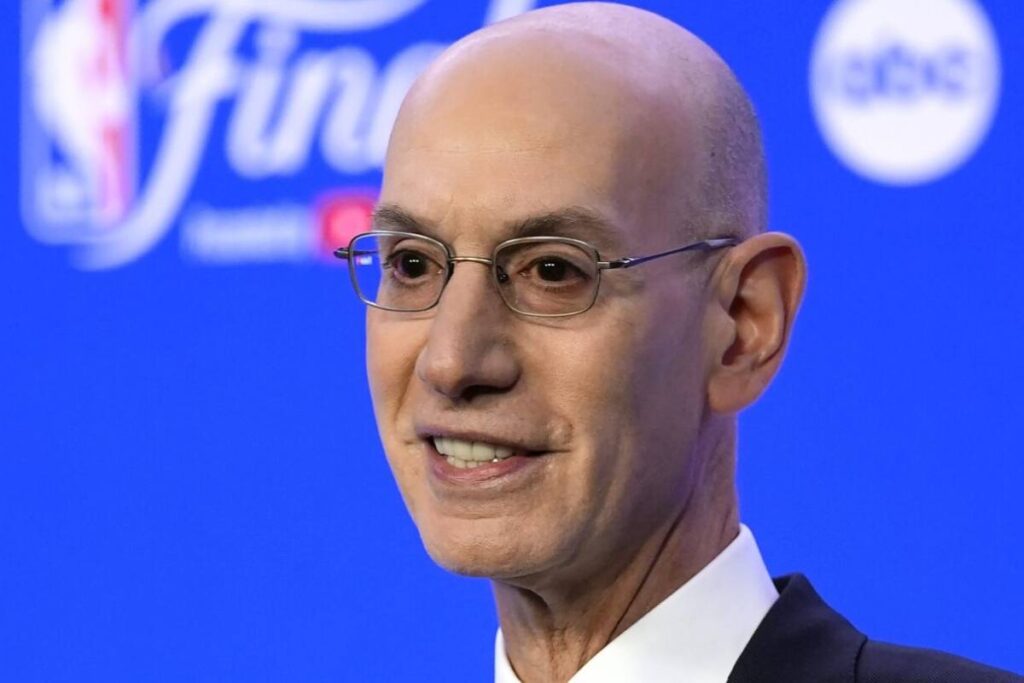Posted on: October 17, 2024, 11:09h.
Last updated on: October 17, 2024, 11:23h.
NBA Commissioner Adam Silver is often cited as being partially responsible for the liberalization of legal sports betting in the United States. A decade after he publicly expressed his support for regulated sports gambling just nine months after becoming the fifth commissioner of the professional basketball league, Silver says he has no regrets about being a front-runner in the push to allow Americans to gamble on sports.

It was November 2014 when Silver wrote an op-ed in The New York Times titled, “Legalize and Regulate Sports Betting.” In the editorial, Silver said a regulated sports betting environment would better protect the integrity of professional and college sports, as the wagering action could be more appropriately monitored than compared with underground bookies.
Sports betting is widespread. It is a thriving underground business that operates free from regulation oversight,” Silver wrote in 2014. “Because there are few legal options available, those who wish to bet resort to illicit bookmaking operations and shady offshore websites.”
Fast-forward to today, and 38 states and Washington, DC, have legal sports betting.
Silver Ponders Sports Betting Push
Sports betting is seemingly now everywhere, with stadium signage promoting sportsbooks and television commercial breaks inundated with celebrities and athletes hyping how easy it is to win by gambling on sports. Critics say the country’s rollout of sports betting was ill-advised, with some calling on Congress to implement a federal framework to protect consumers.
In an interview with the Associated Press, Silver said that while “you can’t turn the clock block,” he doesn’t regret writing the op-ed or being the first of the “big four” pro sports commissioners to lend his support to legal sports betting.
As I said at the time, with the advent of the internet, widely available sports betting online, we had to deal directly with technology and recognize that if we don’t legalize sports betting, people are going to find ways to do it illegally,” Silver said.
Silver, of course, didn’t singlehandedly bring sports betting into a legal environment. The change came by way of the US Supreme Court, which in May 2018, ruled that a federal law that had limited single-game sports wagering to Nevada was unconstitutional.
Federal Framework
Though its odds of passing remain long, US Rep. Paul Tonko (D-New York) and Sen. Richard Blumenthal (D-Connecticut) are behind a federal bill seeking to place a series of regulatory guardrails on states that permit sports betting. The legislation’s proposed conditions include a sports betting advertising ban between the hours of 8 a.m. and 10 p.m., and requiring sportsbooks to conduct “affordability checks” when bettors make large wagers.
Silver says he’s supportive of federal guardrails being placed on sports betting states.
“I was in favor of a federal framework for sports betting. I still am,” Silver explained. “I still think that the hodgepodge state-by-state [approach] makes it more difficult for the league to administer.”
The NBA has been hard on players who violate the league’s sports gambling rules. In April, Silver handed former Toronto Raptors player Jontay Porter a lifetime ban after an investigation determined that he tried to fix games on bookies’ behalf in exchange for illegal payments.
“We take this very seriously,” Silver concluded.




